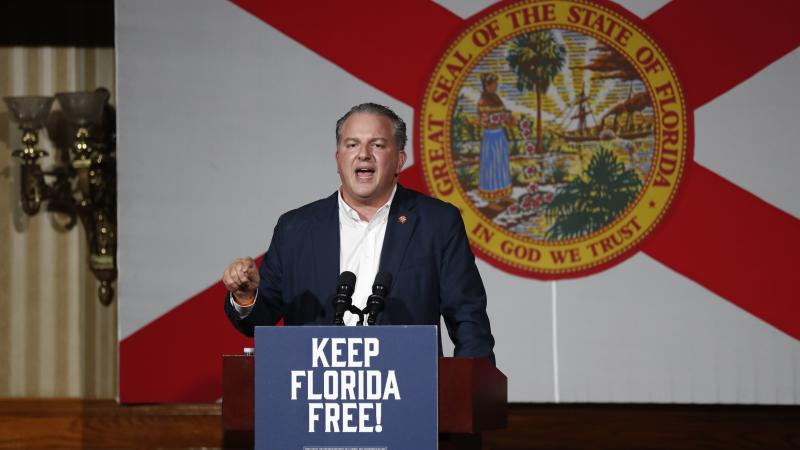Steve Scalise: Afghanistan withdrawal 'pulled the veil back on Joe Biden's competence'
The "heartbreaking" withdrawal "pulled the veil back on Joe Biden's competence," Rep. Steve Scalise said.
House Minority Whip Steve Scalise, R-La., described President Joe Biden's withdrawal from Afghanistan as "heartbreaking," and said it was a turning point in the Biden Administration.
President Donald Trump "wasn't going to turn the country over to a terrorist organization," but wanted to reduce the number of American service members stationed in Afghanistan to 2,500, Scalise said during a JTN Special Report with John Solomon on Tuesday. "It was so heartbreaking to see what happened, the way Joe Biden did it."
Biden did not listen to his own advisors who said to not withdraw suddenly from Afghanistan. The quick August evacuation left 13 U.S. servicemembers dead after an ISIS-K suicide bombing at the chaotic Kabul airport. About $85 billion of advanced U.S. military equipment was left behind and is now being used by the jihadist organization.
Scalise said the withdrawal "pulled the veil back on Joe Biden's competence." Even people who voted for the president began wondering if Biden is "even competent to be president, not just on foreign policy, but on domestic policy," he said.
Biden's approval rating has fallen dramatically since August. Less than one in four Americans want Biden to be the Democratic presidential nominee in 2024. Vice President Kamala Harris's popularity is also falling, and 12% of Americans say they want her to be the Democratic nominee for president.
"Unfortunately, the entire world saw America's weakness and how the Biden administration handled this withdrawal," Scalise said.
In order to restore confidence in America, Scalise said the government needs to support the military abroad and "crack down on crime, support law enforcement [and] secure the border" domestically, but the Biden administration is "not willing or capable" of this.
With Biden in power, Scalise thinks global leaders are looking to take advantage of the United States.
Still optimistic about the future, Scalise said, "We can get out of it, though, and to do that we have to… put America first."














